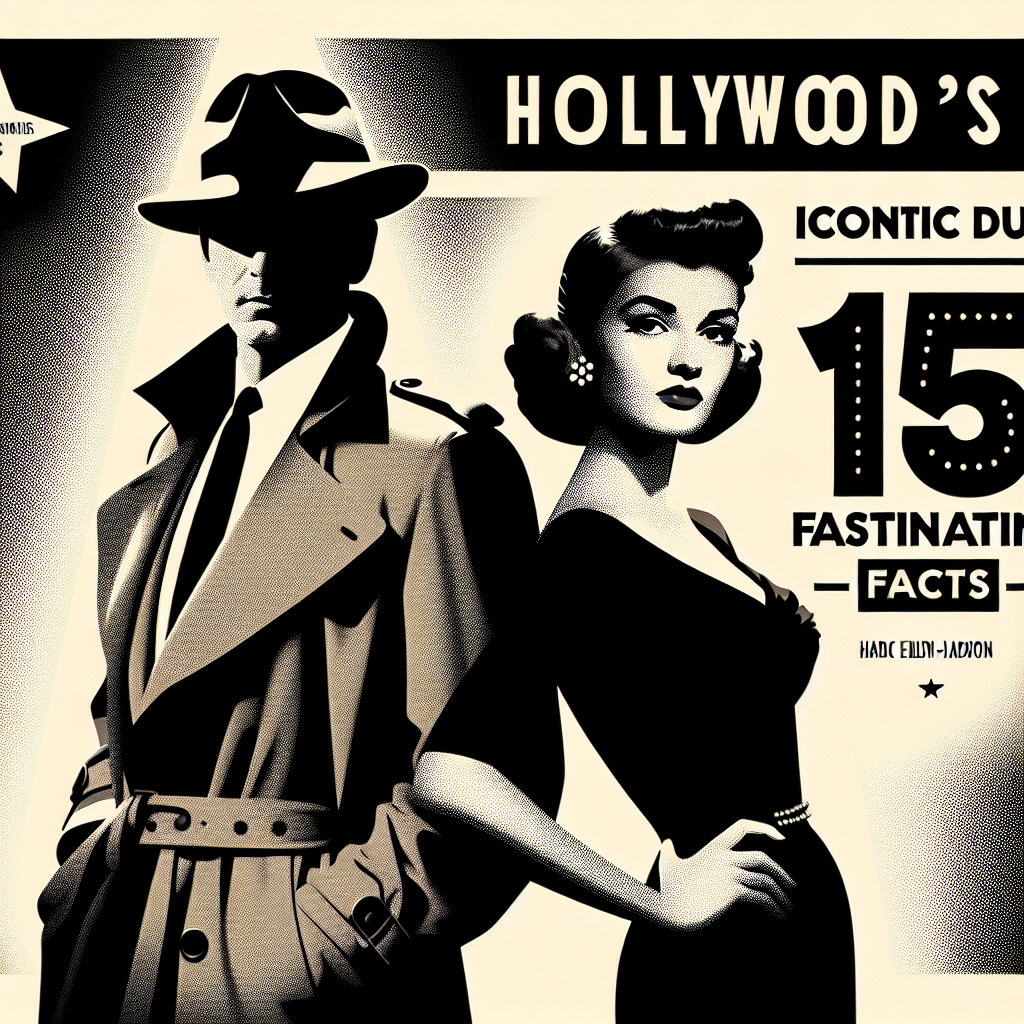John F. Kennedy, the 35th president of the United States, and his wife, Jacqueline Bouvier Kennedy, are among the most iconic figures in American history. Their lives, both individually and as a couple, were marked by significant achievements, tragedies, and a remarkable ability to captivate the American public. In this article, we will explore 15 fascinating facts about the Kennedys and their impact on American culture and history.
1. A Political Legacy
John F. Kennedy was born on May 29, 1917, into a prominent political family. His father, Joseph P. Kennedy Sr., was a successful businessman and served as the U.S. Ambassador to the United Kingdom. Kennedy’s political ambitions were deeply ingrained in him from an early age, leading to his eventual election as the Congressman from Massachusetts in 1947 and later as the U.S. Senator in 1953.
Jacqueline Kennedy, born on July 28, 1929, was also born into an affluent family, but her political involvement grew after marrying JFK. As First Lady, she played a significant role in enhancing the image of the presidential office and representing American culture on the global stage.
2. A Stylish First Lady
Jacqueline Kennedy is renowned for her exquisite fashion sense and elegance. Often referred to simply as "Jackie," she became a style icon, influencing women’s fashion across the U.S. and beyond. She was known for her chic suits, pillbox hats, and graceful demeanor, which redefined the role of First Lady. Designers like Oleg Cassini and Chanel were known to create custom pieces for her, capturing the attention of the public with her impeccable style.
3. The Camelot Era
The Kennedy administration is frequently referred to as "Camelot," a reference that symbolizes the perceived idealism and hopefulness of JFK’s presidency. The term was popularized by Jacqueline herself, who mentioned it after JFK’s assassination, comparing the presidency to the mythic kingdom of Arthurian legend. Camelot represented not just the administration’s accomplishments but also its sense of youthful optimism and ambition amid the backdrop of global tensions.
4. The Kennedy Family
The Kennedy family was often referred to as America’s royal family due to their wealth, political influence, and public visibility. John and Jacqueline had four children: Caroline, John Jr., Patrick, and Arabella. Though the couple experienced the pain of losing a child, they remained dedicated to their family. The family’s legacy continues today through Caroline Kennedy, who has remained active in public life.
5. Harvard and Ivy League Education
John F. Kennedy graduated from Harvard University in 1940 with a degree in Government, which laid the groundwork for his future political career. His education at one of the world’s most prestigious universities equipped him with the knowledge and network necessary to navigate the political landscape of the time.
Jacqueline studied at Vassar College and later transferred to the University of Grenoble in France before finishing her studies at George Washington University. Her international education and fluency in multiple languages deepened her appreciation for culture and art, eventually contributing to her efforts as First Lady.
6. The Cuban Missile Crisis
One of the defining moments of John F. Kennedy’s presidency came in October 1962, during the Cuban Missile Crisis. The confrontation between the U.S. and the Soviet Union over Soviet ballistic missiles deployed in Cuba brought the world to the brink of nuclear war. Kennedy’s calm and deliberate handling of the crisis, through strategic use of diplomacy and a naval blockade, ultimately averted catastrophe and solidified his leadership role in the eyes of the American public.
7. The Road to Paris
JFK and Jackie visited France in 1961, where they were welcomed with an outpouring of affection from the French public. Jackie, in particular, was celebrated for her style and grace. This trip became a defining moment in showcasing the Kennedys’ ability to connect with international leaders and symbolize American values abroad.
8. A Passion for Arts and Culture
Jacqueline Kennedy was passionate about arts and culture, and as First Lady, she took significant steps to promote the arts in America. She played a vital role in the restoration of the White House, ensuring that it reflected American history and culture. Her initiatives led to the establishment of cultural programs and infused the presidency with an appreciation for the arts, enhancing its public image.
9. The Presidential Debates
John F. Kennedy’s performance in the 1960 presidential debates against Richard Nixon marked a pivotal moment in American political history. The televised debates introduced a new era of media influence in politics. JFK’s charisma, confidence, and composure contrasted sharply with Nixon’s more reserved demeanor, leading many voters to favor Kennedy, ultimately contributing to his narrow victory in the presidential election.
10. JFK’s Health Challenges
John F. Kennedy faced numerous health issues throughout his life, including chronic back pain, Addison’s disease, and gastrointestinal problems. His struggles with health were largely kept hidden from the public during his presidency. It wasn’t until after his death that many of his health challenges became widely known, reshaping public perception of his leadership during crises.
11. A Focus on Civil Rights
During his presidency, JFK took significant strides toward civil rights, though initially, his administration had a cautious approach. However, as protests and civil unrest grew, he began to advocate more strongly for racial equality. In June 1963, he delivered a pivotal speech calling for civil rights legislation, emphasizing that “the time has come for the nation to fulfill its promise.” His commitment helped lay the groundwork for the Civil Rights Act of 1964.
12. The Tragic Assassination
John F. Kennedy’s life was tragically cut short when he was assassinated on November 22, 1963, in Dallas, Texas. The assassination shocked the nation and the world, leading to an overwhelming outpouring of grief. Lee Harvey Oswald was arrested for the murder but was killed two days later, which left many unanswered questions and conspiracy theories surrounding the incident.
13. Jacqueline’s Resilience
In the aftermath of JFK’s assassination, Jacqueline Kennedy displayed remarkable resilience. She famously refused to remarry for several years and focused on raising her children while maintaining her late husband’s legacy. She became a symbol of strength and poise in adversity.
14. The Kennedy Legacy
The Kennedy family legacy extends far beyond John F. Kennedy’s presidency. Their commitment to public service continues through various charitable organizations and initiatives that honor JFK’s vision of a better America. The Kennedy Center for the Performing Arts, established in his honor, showcases the family’s ongoing impact on American culture.
15. The Role of the Media
The Kennedys were pioneers in understanding the role of television and media in shaping public perception. John Kennedy’s charisma and ability to connect with the public through media significantly transformed political campaigning. Jacqueline’s elegance and charm were instrumental in utilizing media to build a favorable image for the Kennedy family, expertly managing their public appearances and interactions.
FAQs Section
1. What contributions did Jacqueline Kennedy make as First Lady?
Jacqueline Kennedy is credited with restoring the White House, promoting the arts, and introducing cultural programs. She was also deeply involved in various charitable activities and played a crucial role in shaping the public perception of the presidency.
2. What were John F. Kennedy’s biggest achievements during his presidency?
Some of JFK’s notable achievements included the establishment of the Peace Corps, advancing civil rights, navigating the Cuban Missile Crisis, and initiating the Apollo program to land a man on the moon.
3. How did John F. Kennedy die?
John F. Kennedy was assassinated on November 22, 1963, in Dallas, Texas, by Lee Harvey Oswald. The shocking event led to numerous conspiracy theories and investigations.
4. What was the significance of the term "Camelot"?
"Camelot" refers to the idealistic, hopeful image of JFK’s presidency, likened to the mythological kingdom. The term became widely used after JFK’s assassination, symbolizing the American public’s longing for a return to that time of hope and promise.
5. How did Jackie Kennedy influence fashion?
Jacqueline Kennedy was a fashion icon whose style was emulated by women across the country. Her sophisticated wardrobe choices and elegant appearance helped redefine the image of the First Lady and promoted American designers.
6. What was JFK’s stance on civil rights?
Initially cautious, JFK eventually became a strong advocate for civil rights, calling for federal legislation to ensure equal treatment for African Americans. His statement in June 1963 called civil rights a moral issue and led to pivotal legislation.
7. What was the relationship between the Kennedys and the media?
The Kennedys understood and adeptly used their media presence. John F. Kennedy’s televised debates showcased his charisma, while Jacqueline deftly managed public perceptions through her poise and elegance.
8. How did the Kennedy family cope after JFK’s death?
The Kennedy family, particularly Jacqueline, faced significant grief after JFK’s assassination. Jackie focused on raising her children and preserving JFK’s legacy while receiving overwhelming public support during her time of mourning.
9. When did Jacqueline Kennedy become Jacqueline Onassis?
Jacqueline Kennedy married Greek shipping magnate Aristotle Onassis in 1968, three years after JFK’s assassination. She became known as Jacqueline Onassis following the marriage, a name she maintained until her death in 1994.
10. What is the lasting legacy of the Kennedys?
The lasting legacy includes their influence on American politics, culture, and public service. Their commitment to civil rights, arts, and the global awareness initiated during JFK’s presidency continues to shape American society and inspire future generations.
Through their achievements and challenges, John F. Kennedy and Jacqueline Kennedy have left an indelible mark on American history that remains relevant and inspiring today. Their story resonates with ideals of hope, resilience, and the pursuit of a more vibrant and just society.













Leave a Reply